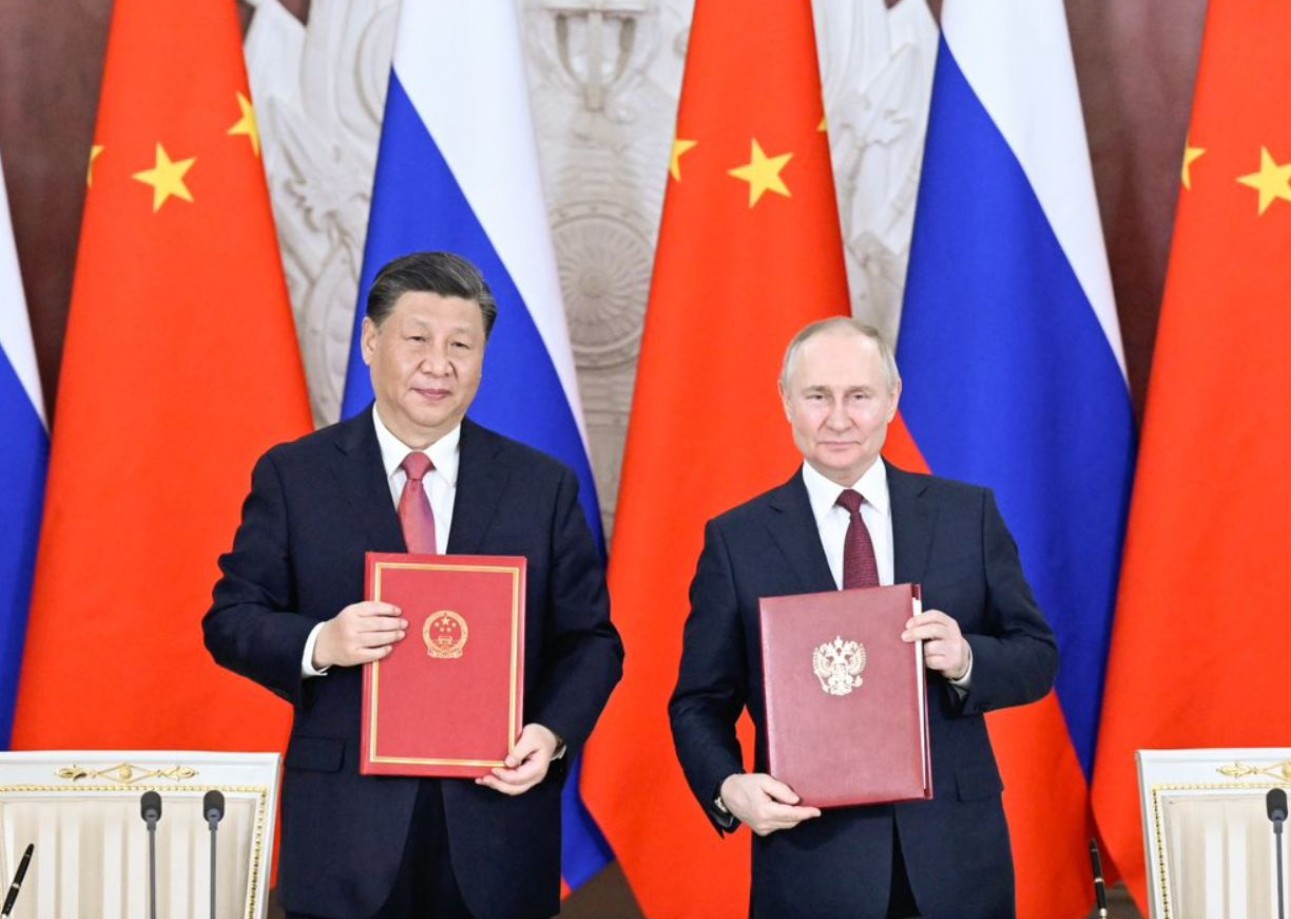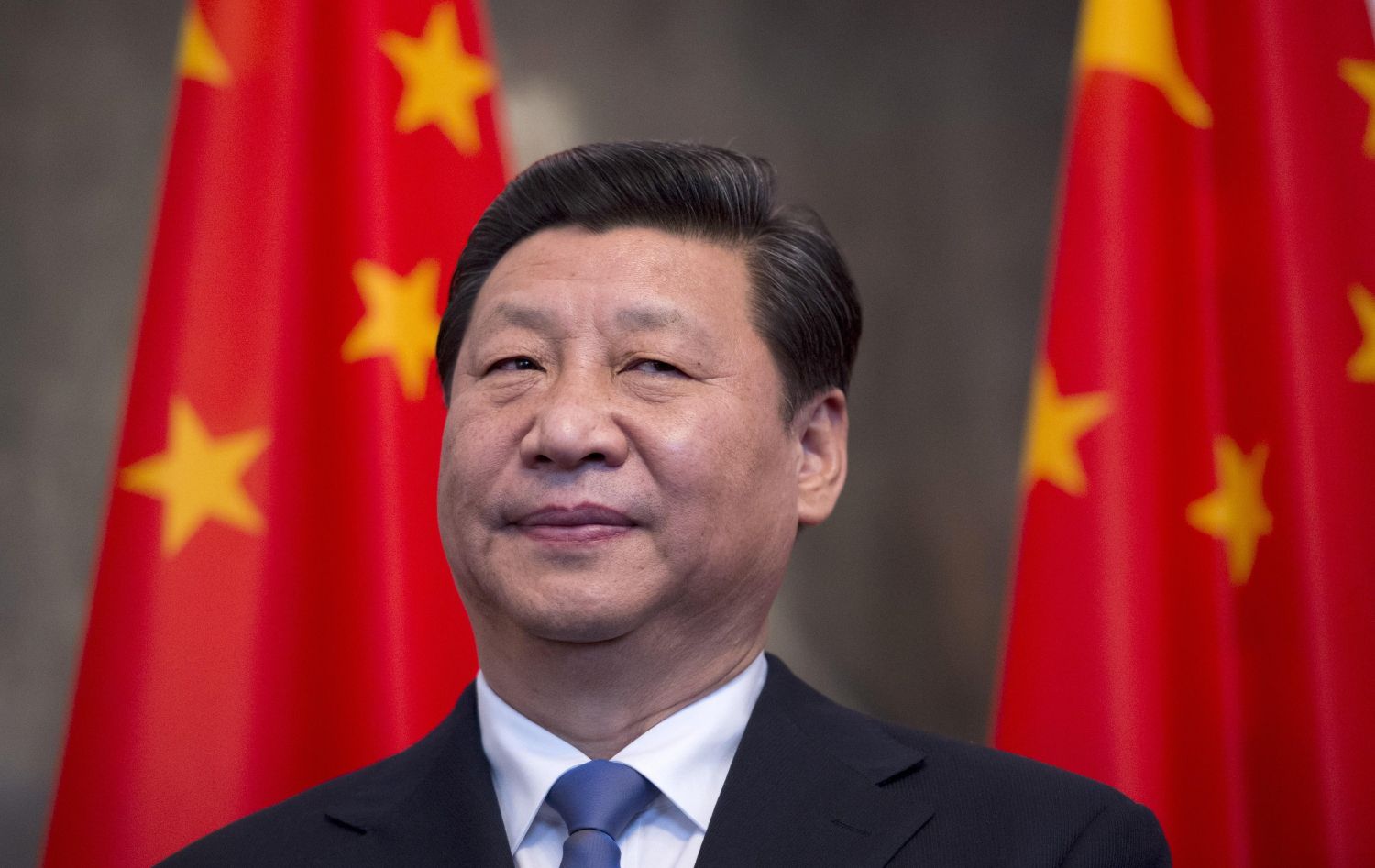Lt Gen. PR Shankar (Retired)
In 2020, Chinese President Xi Jinping famously declared victory over COVID-19. He also proclaimed that China could double its economy by 2035. Those were the heady days when everything was going right for China, and nothing was going right for the rest of the world.
How things have changed! Today, Xi Jinping talks about Black Swan and Grey Rhino events. He foresees great dark clouds on the horizon. However, his ambition of China wreaking revenge on the century of humiliation, ushering in a Sino-centric world, and achieving the China Dream has not changed.
His focus on becoming the world’s foremost statesman and the greatest Chinese leader remains intact. However, there is an issue. The social contract between the Chinese Communist Party (CCP) and the Chinese people is fraying.
The CCP had promised prosperity to the people based on a booming economy underpinned by a plentiful and cheap workforce in a favorable international environment. That is under risk.
As the promised prosperity is receding, people are restive. However, Xi Jinping has changed tack and is now attempting to usher in a prosperous China at the helm of the Sino-centric world order through the triple barrels of his aggressive diplomacy, eyepopping technology, and assertive militarism.
This visible turnaround is evident since the ‘Two Sessions’ finished. China is now amid Xi Jinping’s multiple ‘Great Leaps Backward.’ In this endeavor, he is being aided and abetted by a set of handpicked loyalists with minimal experience in governance.
The Trioka Of Mao, Deng, & Xi
Xi’s ‘Great Leaps Backward’ must be examined against the backdrop of the political economy of China. Why political? Because everything in China is political. Why economy? Because as Clinton famously quipped, ‘It is the economy stupid.’
Communist China has thrown up three leaders of significance in the 100-odd years of its existence. The trio of Mao Zedong, Deng Xiaoping, and Xi Jinping have guided China’s destiny. They have implemented significant changes. China and its people have reason to be proud of many things done by them.
However, each of them had contributed to reining in China and putting it in reverse gear just when it seemed China and its people would break free. When seen in a continuum, the combined political outlook of this trio is guiding a billion-plus Chinese into economic despair.
As per some, Mao, the great helmsman, and the greatest leader, gave the Chinese people independence from imperialism and colonial practices. He gave them a unitary system of governance.
However, he was the architect of the greatest disasters China had to undergo. His ‘Great Leap Forward’ was to leap-frog China’s economy to become modern. This ill-conceived politico-economic adventure led to the greatest manmade famine and the death of an estimated 30-40 million people through starvation.
Later, his hare-brained ‘Cultural Revolution’ purged all suspected capitalists and traditionalists to preserve a Puritan form of Communist society. He led China into abject poverty. The ace duo –- Richard Nixon and Henry Kissinger — gave China and Mao a lifeline in 1972. They took it.
Deng Xiaoping took the munificence of the American lifeline with both hands. He did not care whether the cat was black or white as long as it caught mice. He invented the now-famous social contract between the Chinese state and its people.
He set China on a path that converted it from a poor Communist country to becoming a prosperous, authoritarian state. As China grew rich and strong, he often said, “Hide your strength and bide your time.”
Many people credit Deng with greatness for all of China’s achievements in becoming the power it is today. However, this Chinese strongman ruthlessly instituted and forcibly implemented the one-child policy. This myopic policy is the cause of an irreversible Chinese decline. The Chinese are reaping the disaster that Deng sowed long back and cannot escape their fate.
Xi Era Begins, And It Changes China
Xi took over China when its economy peaked, albeit with rampant corruption and the danger of the CCP falling apart. He propagated the ‘Xi Thought,’ undertook an anti-corruption drive, and purged all political opponents to stem the rot and consolidate his power.
He practiced hardcore Communism of the Mao-Marx variety. He reinvented state control, hardened ideological positions, and embarked on massive military modernization to take his revenge on the ‘Century of Humiliation’ and ‘Rejuvenate The Great Chinese Nation’.
He had enough of hiding strength. It was his time to bide. He challenged the then-established world order to establish a China-centric world with the Belt and Road Initiative (BRI) as the platform.
He also started paving the way for a third and possible life term as the new helmsman of China. He began to reverse China’s course politically and economically in the pre-covid days. That was his first leap backward.
COVID-19 gave Xi the opportunity of a lifetime, as he, perhaps, saw it. China controlled the virus while the rest of the world was still struggling with it. The Chinese economy was humming when the world was down and out.
He isolated the rest of the world from China, which kept the virus at bay, and was holding pool parties. His famed ‘Zero COVID’ policy was the awe and toast of the world. What started as an exercise to prevent the spread of the disease soon became the instrument of ruthless state control.
This was the period when he took the second leap backward. He culled the big tech and fintech and imposed restrictions on the real estate sector. He brought in “Common prosperity,” “Dual circulation,” and “Western area development” models.
He went to the extent of getting the history of the Communist Party pre-written with him as the core. At this stage, the Chinese vaccines failed him. The rest of the world recovered, and China was stuck with outdated isolation and lockdowns to combat the virus.
Xi Jinping had the choice of accepting Western vaccines and saving China’s economy. That was, however, political anathema for him. In one year, between mid-2021 and 2022, the economy started hemorrhaging, and people started getting restive. File Image: Xi Jinping & Vladimir Putin
File Image: Xi Jinping & Vladimir Putin
 File Image: Xi Jinping & Vladimir Putin
File Image: Xi Jinping & Vladimir PutinXi’s ‘Achilles’ Heel
The Ukraine war had arrived by then and upset Xi’s applecart in two ways. It consolidated the US hold over Europe and the West, which started treating China as a systemic challenge. It also caused global inflation, and Chinese exports dipped.
However, Xi chose not to mend fences with the West as he was busy consolidating power in the run-up to and beyond the 20-Party Congress. He was more interested in ‘Two Establishes’ and ‘Two Safeguards’ to ensure his power base remained unshakeable. Protests came to the streets in a big way, and the economy tanked.
As he consolidated his power and put together his loyalists in his team in the period from October 2022 to March 2023, a few things came to the fore. China would be under a one-man rule for a long time to come.
The demographic decline of China was established. The real estate sector comprised about a quarter of the Chinese GDP and went into a slow-motion, ongoing collapse. It was also clear that the debt-fuelled investment-led infrastructure development, manufacturing, and export model of Chinese growth had run its course.
The BRI had proven to be giving no financial returns. Consumption would not take off as job losses mounted and the toll of an unprecedented drought began to be felt. Xi Jinping conceptualized his third and probably the riskiest leap backward during this period.
Seemingly, he has turned away from the economy. However, he is betting big on science and technology. He has set his sights on prosperity through promising technologies: Electric Vehicles, solar power, AI, quantum computing, biotech, robotics, space, aerospace, and materials science.
The issue is that many of these technologies are aspirational. Their economic outcomes are uncertain and risky. Moreover, China is unlikely to make headway without core technologies and adequate high-end chips. The sanctions of the West combined with reshoring/friend-shoring/de-coupling/de-risking will take their toll inevitably.
Xi’s other big bet has been on a combination of diplomacy and military. He is projecting them in such a manner so that he can form an alternate political, economic, financial, and trading system with China as its center. File Image: Xi Jinping
File Image: Xi Jinping
 File Image: Xi Jinping
File Image: Xi JinpingThe problem with Xi Jinping’s new gambit is that he is visualizing a Sino-centric order in which he expects everyone to open doors for China, as China keeps its door firmly shut.
The other emerging problem is that the Chinese financial sector is in serious trouble. The ongoing crackdown on the banking sector indicates this. Without a stable financial sector, the Yuan will not gain international traction. China will be in serious economic doldrums if the Yuan does not gain traction.
Communist China’s Paradox
The Chinese economic paradox is ultimately surfacing. Where China has markets, it has no influence. Where China has influence, it has no markets. Geopolitical tensions pit China against the affluent Global North.
The indebted Global South cannot repay its loans. Global inflation has reduced buying capacity. This puts Xi Jinping’s political economy in a slow but steady contraction zone.
Xi’s ‘Great Leaps Backward’ must also be seen in a different context. A large part of the political economy of Xi and the CCP has been that they have always tried to sidestep the fate which befell USSR. They have striven to avoid the mistakes that Gorbachev made.
However, Xi’s methods reinforce the same mistakes Gorbachev tried to rectify in the Communist system. USSR did not collapse due to a faltering economy. It collapsed due to the opacity generated by organized lying, which hid the hollowness and corruption of the Communist system.
It collapsed due to losing faith in Communist ideology and dismal living standards. It collapsed due to elite infighting and the rigid communist system, which could not reform. Gorbachev wanted reform but could not restore the Stalinist model to Leninist principles.
In USSR, the personalized politics of the Brezhnev and Andropov era had stunted institutions. Inefficient government-owned factories could not produce what the people wanted, and what people needed was not produced. Supply simply did not match demand.
The Soviet Union could not service its debt or sustain its oversized military. All these conditions are prevalent in some form or the other in China today.
The additionality is fast aging and shrinking declining population. Xi wants to reset China in the Mao mold with Deng’s economic outlook. Like Gorbachev, Xi’s leap of faith seems to be falling in between.
Where is Xi Jinping leading China with his radical and fast-paced backward leaps? That is the question. Many will say it will be a collapse. However, I do not foresee a failure since the Chinese population is far too monoethnic for a complete breakdown.
However, one can foresee a slow but steady contraction of the economy despite the theatrics of diplomatic and military grandstanding. As the economy contracts, internal tensions in China will increase. This is already evident due to radical changes implemented by Xi’s earlier leaps.
The current one will increase internal unrest further as China ages. China’s long-submerged rural and urban divide could re-emerge as the new fault line.
China could end up with a military and geopolitical overstretch, which will be at odds with internal factors. That is when Xi and his loyalists will be most dangerous to the world, in general, and India in particular.Lt Gen PR Shankar is a retired Director General of Artillery of the Indian Army. He is now a Professor in the Aerospace Department of the Indian Institute of Technology, Madras. He can be reached at pravishankar3 (at) gmail.com.
No comments:
Post a Comment